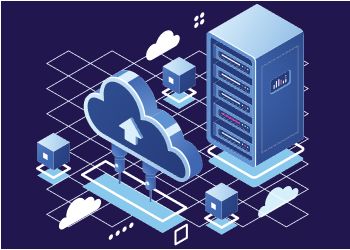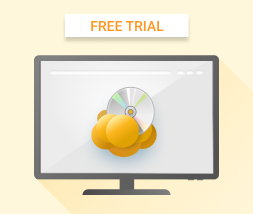Everyone knows that backup is a must nowadays. When you lose your data, you lose money and, in some cases, the whole business or, if you are a managed IT provider, your clients. The amount of data you need to back up is getting bigger and bigger over time. It has got so big, in fact, that the popularity of local storage solutions and local backups is diminishing. You can, for sure, store your data in the cloud, but how do you choose the right option?
There are dozens of different cloud vendors and cloud storage services. In terms of cloud backups, that variety can be broken down into three groups: private cloud storage, public cloud storage, and backup vendor storage.
In this article, we will talk about the specifics of each of these groups, and overview the best solutions for each job.
Private Cloud
There are free, open-source solutions on the market, on the basis of which you can develop your own cloud storage and infrastructure. It's the most expensive way of storing your data from the capital-investment point of view; you need a dedicated data center, and you also need to develop, test, and manage the cloud solution.
Maximum Responsibility
With the fully private cloud, you are responsible for everything – the hardware and the software, the maintenance, and everything in between. If your data center’s power supply goes down, all your data is unreachable. Also, you need to know in advance about any increase in the data volume, since you need to plan your hardware upgrade strategy.
On the upside, with the private cloud, you are in full control of every security aspect and can build a custom solution according to your clients' needs.
Private Cloud Solutions
The Hardware Solution
You can build a cloud storage solution on just about anything with a hard drive. For lesser workloads, consider choosing network-attached storage (NAS). If you are going to support a number of users or clients, but don't have enough resources to build your own data center, find a colocation data center nearby at which to set up your own hardware and software. This will ease the capex load, and you can focus on setting up your solution. However, if you are aiming towards full control of the storage solution, you need your own data center.
Further reading MSP’s Guide to Local Storage as a Backup Destination
The Cloud Solution
You also need to choose the cloud solution you will use for storage. Typically, this will mean the open-source, S3-compatible, free solutions. There are three typical go-to options:
- MinIO
- OpenStack Swift
- Ceph
These run in either Windows or Linux environments.
Public Cloud
When you go for a public cloud, you will typically find lower-priced storage, no capex, top-notch infrastructure, and no direct control over the hardware and software environment. There are dozens of public cloud storage providers, which fall into two groups: the cloud giants with vast infrastructure, interconnectivity, and granular features; and smaller companies, focused on providing cloud storage services. Both these groups are reliable, fast, and provide overall great service.
Some say that public cloud storage is not safe, which is totally untrue. The most elaborate cloud storage providers on the market have developed bulletproof identity and access management systems (if, of course, you set these up appropriately). In terms of physical safety, your data is typically replicated across several data centers with maximum security.
Further reading The Benefits of Cloud Storage
Medium Responsibility
When you choose a public cloud, you are responsible for setting it up, security, and all charges. Support exists, but don't rely on it very much. So, if you are going to provide your clients or users with backup in a public cloud, you'd better evaluate and extensively test the solution first.
How Do You Choose Public Cloud?
As we have already mentioned, there are two groups of public cloud storage suitable for backup data storage. You need to define whether you will only need your data to be safe at low cost, or you need additional features, such as connectivity to cloud virtual machines, data archiving tiers, or controlled worldwide replication.
Popular Solutions
The Features
From the feature-set point of view, the three biggest competitors are Amazon Web Services and their Amazon S3, Microsoft Azure with Microsoft Azure Blob Storage, and Google Cloud with Google Cloud Storage. Each of these is a colossus of the cloud; they are the biggest cloud vendors on the market. Their infrastructure is vast; you can find a data center in any part of the planet, and in most countries. They constantly compete for better features and prices.
Further reading Compare AWS, Microsoft Azure and Google Cloud for Backup
The Prices
There are lots of ”storage solutions” claiming to store 1TB of data for a couple of dollars. Typically, such solutions are operational for about a month and then shut down forever. However, there are two mature companies who compete with AWS, Microsoft, and Google for the cloud storage market. They are Wasabi Cloud Storage and Backblaze B2. Both of these companies are run by experienced storage professionals. They won't offer you the vast feature set of the big three; what they will offer are excellent services and the lowest possible prices.
Download the recording to learn more from the

Further reading 3 Steps to Choosing a Cloud Storage Provider
Backup Vendor's Cloud Storage
Many backup vendors are moving towards the storage-agnostic approach. Indeed, they cannot compete in terms of features, prices, and infrastructural excellence with companies solely focused on providing storage services. However, some backup vendors will still offer you the option to store data in their proprietary cloud storage. This approach has an upside: you have the minimum-possible responsibility, since the backup and storage vendor does all the security and infrastructural parts for you. The downsides: you will pay comparatively more than for public cloud storage, and you control far less than with both public and private cloud storage.
In a Nutshell
In today’s cloud storage market, you can find a solution that will fit your needs exactly. If you need some backup to be done, you don't have any time to control and set things up, and you don't care about money, choose a backup vendor with its own cloud backup storage. If you are after full control and have time and resources to spend, private cloud storage is your choice.
But the easiest way to safe, inexpensive, and scalable backup storage is a public cloud.
Further reading Getting Started with Backblaze B2 Cloud Storage and MSP360 Backup






